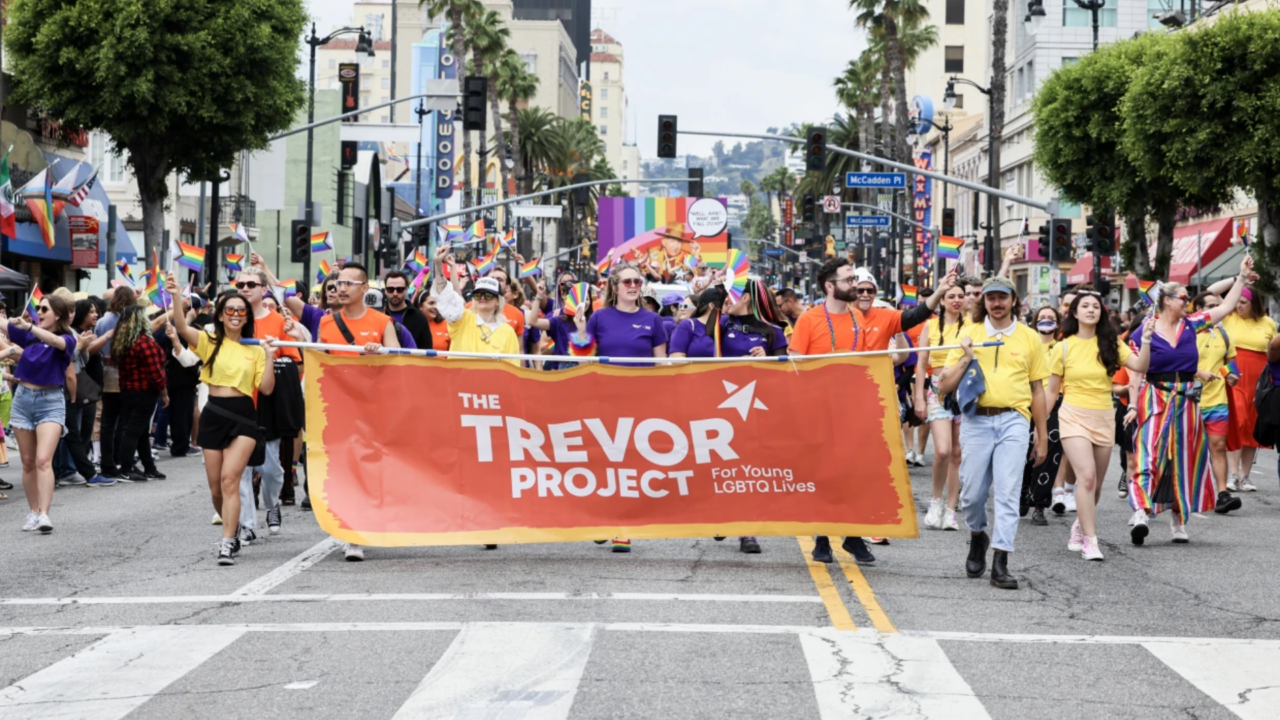A harrowing new survey by The Trevor Project paints a grim picture of the mental health struggles faced by LGBTQ+ youth in the United States, highlighting the urgent need for action.
The mental health crisis facing LGBTQ+ youth in America is reaching alarming proportions, according to a new survey by The Trevor Project.
The study reveals a disturbing reality where a significant portion of this community is grappling with barriers to accessing essential mental health care, bullying, and the negative impact of recent political developments.
Barriers to mental health care
One of the most concerning findings of the survey is that 50% of LGBTQIA+ young people who wanted mental health care in the past year were unable to access it.
According to a 2021 report by the Williams Institute, LGBTQ+ individuals are more likely to experience mental health issues, such as depression and anxiety, compared to their heterosexual and cisgender counterparts, making access an absolute necessity.
Here, the barriers to accessing mental health care can be multifaceted. Factors such as lack of LGBTQ+-competent healthcare providers, financial constraints, stigma, and discrimination can all contribute to the difficulties faced by this community in seeking help.
A study by the Center for American Progress found that LGBTQ+ individuals often face discrimination and insensitivity from healthcare providers, leading many to delay or avoid looking for help altogether.
Our friends at The Trevor Project released their 2024 U.S. National Survey on the Mental Health of LGBTQ+ Young People. The results are a staggering reminder that anti-LGBTQ+ rhetoric and policies are hurting LGBTQ+ youth. Read the full report: https://t.co/AQ8trtcg0u pic.twitter.com/kQSA47qrcn
— Human Rights Campaign (@HRC) May 5, 2024
The impact of politics
The survey also sheds light on the detrimental effects of recent political developments on the well-being of LGBTQ+ youth. A staggering 90% of LGBTQIA+ young people reported that their well-being was negatively impacted due to recent politics.
This finding aligns with a study conducted by the Human Rights Campaign, which found that the surge in anti-LGBTQ+ legislation across various states has had a profoundly negative impact on the mental health and overall well-being of LGBTQ+ individuals, particularly youth.
The political climate surrounding LGBTQ+ issues has been increasingly polarized in recent years, with several states enacting laws that restrict access to gender-affirming care, limit discussions of LGBTQ+ topics in schools, and roll back protections for LGBTQ+ individuals.
These developments have created an environment of fear, uncertainty, and marginalization for young LGBTQ+ people, contributing to increased stress, anxiety, and depression.
Considering relocation
The survey also revealed that 45% of trans and non-binary youth said they or their family have considered moving to a different state because of LGBTQ+-related politics and laws.
This statistic underscores the immense stress and uncertainty faced by this community due to the political climate. A report by the Movement Advancement Project highlights the stark disparities in legal protections and societal acceptance for LGBTQ+ individuals across different states, which may contribute to the desire to relocate to more inclusive environments.
The prospect of having to uproot one’s life and move to a different state due to discriminatory laws and policies is a heavy burden for anyone to bear. It inevitably disrupts educational opportunities, social support networks, and access to affirming healthcare services, further exacerbating the mental health challenges faced.
Bullying and physical threats
The survey also sheds light on the prevalence of bullying and physical threats.
As much as 49% of LGBTQIA+ young people aged 13-17 experienced bullying in the past year, with 28% of those identifying as trans and non-binary reporting having to deal with violence and verbal abuse.
These findings align with a report by GLSEN, which found that LGBTQ+ students experience higher rates of bullying and harassment in schools compared to their non-LGBTQ+ peers, leading to increased absence rates and decreased academic performance.
According to the National Bullying Prevention Center, victims of bullying are more likely to experience anxiety, depression, and even suicidal thoughts. Additionally, the fear of being targeted can lead to disengagement from social activities and educational opportunities altogether.




















